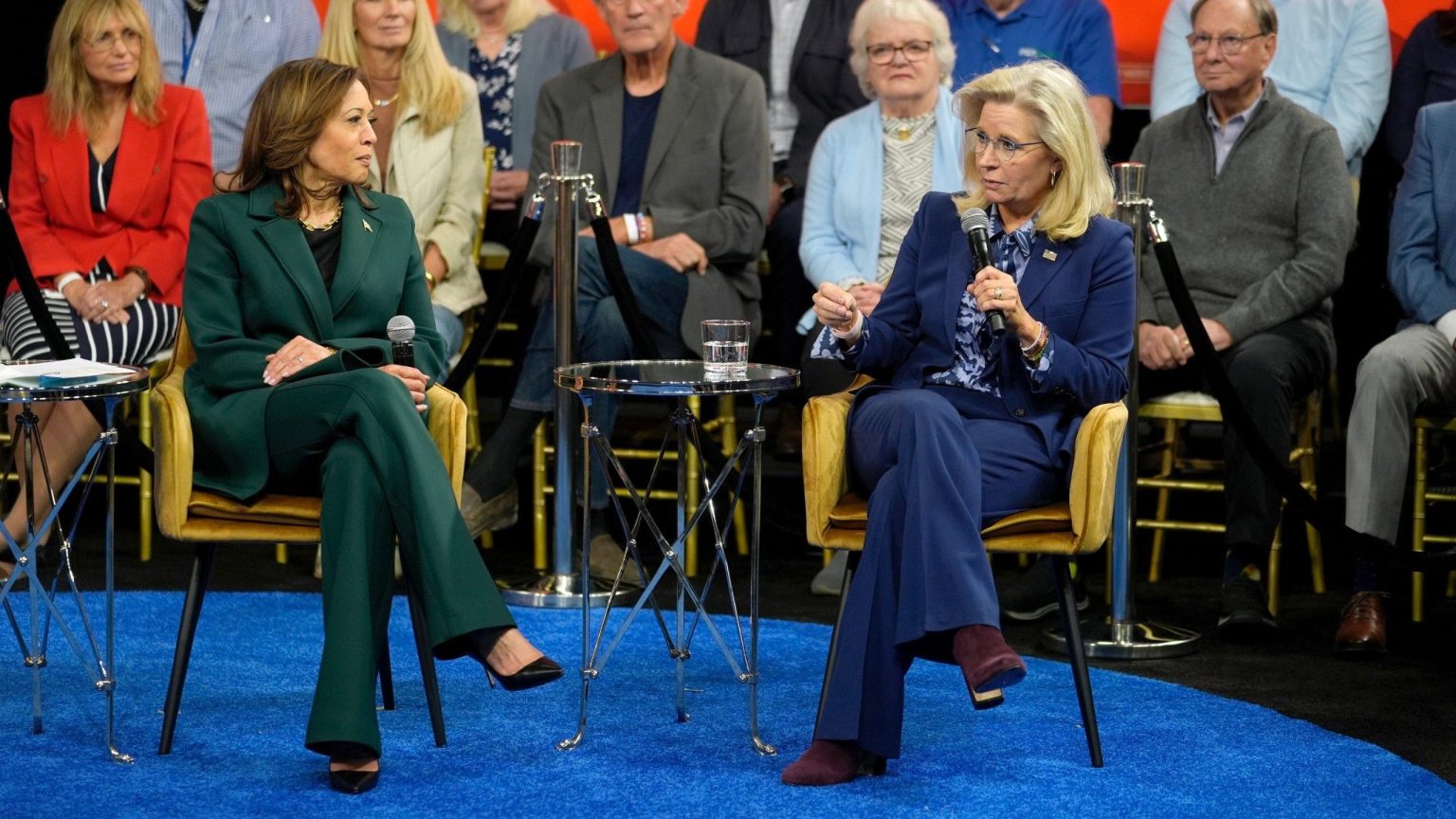Former congresswoman Liz Cheney, in a collaboration with Vice President Kamala Harris, sought to appeal to moderate Republicans who may be hesitant to publicly support former President Donald Trump. The duo visited three key counties – Chester County in Pennsylvania, Oakland County in Michigan, and Waukesha County in Wisconsin – all of which were won by Nikki Haley, a former contender for the Republican nomination against Trump. During a townhall in Michigan, Cheney emphasized the upcoming election as a choice between right and wrong, suggesting that many Republicans are privately against Trump but fear backlash or violence if they speak out.
Cheney acknowledged that many Republicans confide in her privately about their concerns regarding Trump, including fears of violence, but expressed confidence that they would ultimately do the right thing in the privacy of the voting booth. She predicted that “millions” of moderate Republicans who are unable to publicly oppose Trump will choose to vote for Harris on November 5th. Cheney encouraged voters to follow their conscience and assured them that they can cast their ballots without facing scrutiny. Her remarks were met with applause from the audience, highlighting the potential support for Harris among Republicans who are quietly critical of Trump.
Cheney’s collaboration with Harris marks a significant shift from her previous allegiance to the Republican Party, as she has been ostracized for her involvement in a congressional investigation into Trump’s role in the January 6th events at the U.S. Capitol. This investigation led to her losing her congressional seat in a primary battle two years ago. Despite the backlash she has faced within the GOP, Cheney continues to champion her beliefs and advocate for a more moderate approach within the party, aligning herself with Harris in an effort to sway undecided voters and offer an alternative to the Trump loyalists within the Republican base.
The joint efforts of Cheney and Harris reflect a broader attempt to appeal to disaffected Republicans who may be seeking an alternative to Trump’s influence within the party. By reaching out to moderate voters who are critical of Trump but hesitant to openly oppose him, Cheney and Harris aim to provide a viable option for those who feel marginalized within the GOP. Their message of voting based on conscience and standing up for what is right resonates with a segment of the Republican electorate that may be disillusioned with the direction of the party under Trump’s leadership.
As the November election approaches, Cheney and Harris are positioning themselves as advocates for a more inclusive and moderate Republican Party, in contrast to the divisive and polarizing influence of Trump. By highlighting the choice between right and wrong, they hope to appeal to voters who prioritize integrity and principles over partisanship. Their outreach to hesitant Republicans underscores the complex dynamics within the party and the efforts to navigate a path forward that addresses the concerns of a diverse and increasingly fragmented voter base.
Ultimately, the collaboration between Liz Cheney and Kamala Harris represents a reflection of the changing landscape within the Republican Party and the broader political spectrum. As they work to sway moderate voters and offer an alternative to the Trump loyalists, Cheney and Harris are challenging traditional party dynamics and advocating for a more inclusive and principled approach. Their joint efforts signal a potential realignment within the GOP and a shift towards a more diverse and ideologically varied party, as they seek to redefine the Republican identity in the aftermath of Trump’s presidency.


